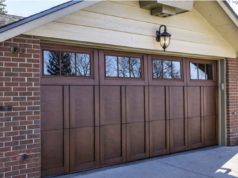State’s Investment of Federal Tax Credits to Create and Preserve More Affordable Housing
Over 620 units will be created or preserved for seniors, working families and people with disabilities, and more than 930 jobs will be generated
STATEWIDE – July 25, 2013 – (RealEstateRama) — Affordable housing for seniors, working families and people with disabilities is on the horizon for Illinois communities. As the state housing finance agency under Governor Pat Quinn, the Illinois Housing Development Authority (IHDA) Board recently approved the allocation of federal tax credits generating an estimated $62.2 million in private equity to create more than 620 new and refurbished affordable rental units and generate more than 930 jobs across Illinois.
“This federal tax credit financing will safeguard the affordability of apartments on a long-term basis. Easing the cost of housing for working families, seniors and people with disabilities is a priority for our state that Governor Quinn has continued to support,” IHDA Executive Director Mary R. Kenney said. “Our communities improve as a whole when our low- to moderate-income residents can have housing stability. Additionally, these developments will benefit the economy by creating jobs.”
Nine developments will begin construction in upcoming months in the areas of Chicago, St. Louis, Central Illinois and Rockford. These developments continue Governor Quinn’s commitment to increasing affordable housing across the state, and boosting quality jobs. Under Governor Quinn, IHDA has allocated federal tax credits generating $813 million in private investment to support the creation and rehabilitation of 10,220 units of affordable housing and creating an estimated 11,300 jobs.
A full list of the developments is available at www.ihda.org/developer. Projects include:
• Lakewood Village in Grayslake (Lake County) – The rehabilitation of this 84-unit apartment development for working families in suburban Grayslake will include energy-efficient upgrades (such as Energy Star appliances), a new computer room and community gardens.
• Wildberry Village Apartments in Rockford – Work to rehabilitate the 74-unit development for working families will include new windows, driveways and heating and cooling units.
• Parkside Homes in Athens (Central Illinois) – Abandoned and vacant properties will be replaced by new 33 one-, two-, three- and four-bedroom single-family homes, and the development will be located adjacent to parkland to provide recreational opportunities for the working families who live there.
• The Cottages at Cathedral Square in Belleville – A new 32-unit development for seniors will be constructed in a single two-story building and in four villa-style, single-story buildings. The adjoining McCormick Center, owned and operated by St. Peter’s Cathedral Parish, will host events for residents, and the development will offer intergenerational opportunities with a nearby school and daycare center.
About half of the projects receiving tax credits will preserve affordable housing, ensuring the availability of safe and decent housing for decades to come. Several will strive for the Enterprise Green Certification, a certification for equipping the building with clean-air and energy-efficient amenities and ensuring the location has ample green space and is near food and medical facilities.
The state’s investment of federal tax credits will also benefit extremely low-income residents with disabilities in need of permanent supportive housing, with nearly 90 units to be built or preserved in Illinois. The State Referral Network, a statewide housing coordination service, will assist in connecting residents to these units.
In 1986, Congress created the federal tax credit program to spur the development of affordable housing. It is widely considered the most effective affordable housing financing tool in the nation. The sale of federal housing credits to private investors generates equity, and this equity reduces the need for the developer to borrow money for the new development. This savings results in lower rents. Every year, federal tax credits finance more than 100,000 apartments nationwide to add to the inventory of affordable rental housing, according to the National Council of State Housing Agencies (NCSHA).
To qualify for the affordable units, residents must earn at or below 60 percent of the area median income (AMI) ($39,780 in the Chicago area or $37,380 in the St. Louis area for a three-person household). The supportive housing units will be available for individuals at or below 30 percent of AMI ($15,480 in the Chicago area and $14,550 in the St. Louis area for a one-person household).
Developers will now seek private investment for the tax credits, and construction is expected to begin by next year.






